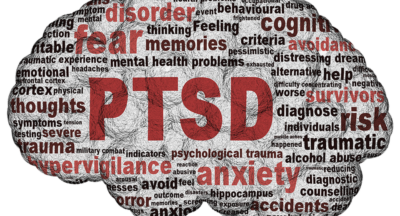
Are you in the right MOOD to eat healthy FOOD? How can mental health affect your eating habits in the positive or negative way: Is the fast food industry subliminal messages affect our moods and how can we fight back? Psychological warfare explained!

Psychological warfare entails the strategic deployment of propaganda and psychological tactics, including subliminal messages, to shape consumers’ opinions, emotions, attitudes, and behaviors, encompassing eating habits among other responses. Is the fast food industry employing such methods to bolster their sales and profit margins? While it would be unfair to solely attribute responsibility to them, their practices undoubtedly contribute to the obesity crisis in America.
Let’s delve deeper into the intersection of mental health and dietary behaviors. The impact of mental well-being on eating habits can be profound, exerting both positive and negative effects due to the intricate interplay between the mind and body. This dynamic relationship is multifaceted, influencing food choices and consumption patterns in diverse ways.
What are the positive effects?
- Nutrient-Rich Choices: Good mental health often leads to positive eating habits, as individuals tend to make healthier food choices. When feeling mentally well, people are more likely to opt for nutrient-dense foods such as fruits, vegetables, lean proteins, and whole grains, which support overall well-being.
- Balanced Eating Patterns: Mental wellness fosters a balanced approach to eating, promoting regular meals and snacks throughout the day. This balanced pattern helps regulate blood sugar levels, sustains energy levels, and supports optimal physical health.
- Mindful Eating: Positive mental health encourages mindfulness around eating, fostering an awareness of hunger and fullness cues. Mindful eating practices promote a deeper connection with food, allowing individuals to savor flavors and textures while avoiding overeating or emotional eating.
- Improved Digestion: Mental well-being positively influences digestion, as stress and anxiety can disrupt the digestive process. When individuals are relaxed and content, their bodies are better able to absorb nutrients, leading to improved digestion and overall gut health.
- Enhanced Body Image: Positive mental health is associated with a healthier body image, which can contribute to a more positive relationship with food. Individuals who feel confident and comfortable in their bodies are less likely to engage in restrictive eating behaviors or develop unhealthy attitudes towards food.
Time to discuss the negative effects:
- Emotional Eating: Poor mental health often triggers emotional eating, where individuals turn to food for comfort or distraction from negative emotions. This can lead to overeating, binge eating, and reliance on high-calorie, low-nutrient foods as a coping mechanism.
- Stress-Induced Eating: Stress, anxiety, and depression can disrupt normal eating patterns, leading to irregular meal timing and cravings for unhealthy foods high in sugar, fat, and salt. This stress-induced eating can contribute to weight gain, poor nutrition, and exacerbate existing mental health issues.
- Disordered Eating: Mental health disorders such as depression, anxiety, and eating disorders often coexist, creating a harmful cycle of disordered eating behaviors. Conditions like anorexia nervosa, bulimia nervosa, and binge eating disorder can profoundly impact eating habits, jeopardizing physical and psychological well-being.
- Nutritional Deficiencies: Poor mental health may result in neglecting nutritional needs, leading to deficiencies in essential vitamins, minerals, and macronutrients. Disinterest in cooking, low appetite, or restrictive eating behaviors can all contribute to inadequate nutrient intake, compromising overall health.
- Body Dissatisfaction: Negative body image, often stemming from poor mental health, can fuel disordered eating patterns and contribute to a strained relationship with food. Feelings of inadequacy or dissatisfaction with one’s appearance may lead to extreme dieting, excessive exercise, or other harmful behaviors in an attempt to achieve an idealized body image.
- Impact on Weight: Mental health issues can impact weight regulation, leading to fluctuations in body weight. Chronic stress, anxiety, and depression may alter metabolism, increase cortisol levels, and promote fat storage, contributing to weight gain or difficulty losing weight.
The fast food industry often utilizes subtle psychological techniques, including subliminal messaging, to influence consumer behavior and promote unhealthy eating habits. These subliminal messages can be embedded in advertising campaigns, menu designs, and even restaurant environments, subtly nudging individuals towards unhealthy food choices without their conscious awareness.

One way in which subliminal messages affect our moods and eating habits is by triggering cravings for high-fat, high-sugar, and high-calorie foods. Through carefully crafted imagery, sounds, and even scents, fast food establishments create an environment that stimulates the pleasure centers in the brain, making their products irresistible to consumers.
Moreover, fast food advertising often associates their products with feelings of happiness, satisfaction, and indulgence, further reinforcing the connection between unhealthy eating and positive emotions. This can lead individuals to seek out fast food as a quick fix for stress relief or emotional comfort, perpetuating a cycle of unhealthy eating behaviors.
To fight back against these manipulative tactics and change our habits, it’s essential to become more aware of the influence of subliminal messaging and advertising on our food choices. By actively questioning the messages we encounter and critically evaluating the motives behind them, we can resist the temptation to succumb to unhealthy cravings.
Additionally, cultivating mindfulness around eating can help us become more attuned to our body’s hunger and fullness cues, allowing us to make more conscious and nutritious food choices. Practicing mindful eating techniques, such as savoring each bite, chewing slowly, and paying attention to how different foods make us feel, can help break the cycle of mindless overeating.
Furthermore, seeking out healthier alternatives to fast food and making small, sustainable changes to our diet can gradually shift our eating habits towards a more balanced and nutritious approach. This might involve preparing meals at home using fresh, whole ingredients, exploring healthier fast food options when dining out, or incorporating more fruits, vegetables, and lean proteins into our diet.
Ultimately, by arming ourselves with knowledge, mindfulness, and healthier alternatives, we can empower ourselves to resist the influence of subliminal messaging and make positive changes to our eating habits for long-term health and well-being.
In retrospect, mental health has a profound influence on eating habits, shaping food choices, consumption patterns, and overall nutritional well-being. Positive mental health fosters a balanced approach to eating, mindfulness around food, and healthier food choices, while poor mental health can lead to emotional eating, disordered eating behaviors, and nutritional deficiencies. Recognizing the interconnectedness of mental health and nutrition is essential for promoting overall health and well-being.
dr.dan
Related Posts
The many faces of Trauma: The many strategies in building coping skills for trauma triggers. Not ONE solution fits all!
Trauma can have a profound and lasting impact on an individual’s mental,...
Misdiagnosed mysteries: Elevated ego vs narcissistic personality disorder.
The Covid-19 pandemic has unfortunately worsened the mental well-being of...
Exploring the upsides and downsides of excessive romantic dependence in new or existing relationship
Examining the advantages and disadvantages of being overly emotionally attached...
Are you in the right MOOD to eat healthy FOOD? How can mental health affect your eating habits in the positive or negative way: Is the fast food industry subliminal messages affect our moods and how can we fight back? Psychological warfare explained!
Psychological warfare entails the strategic deployment of propaganda and...




